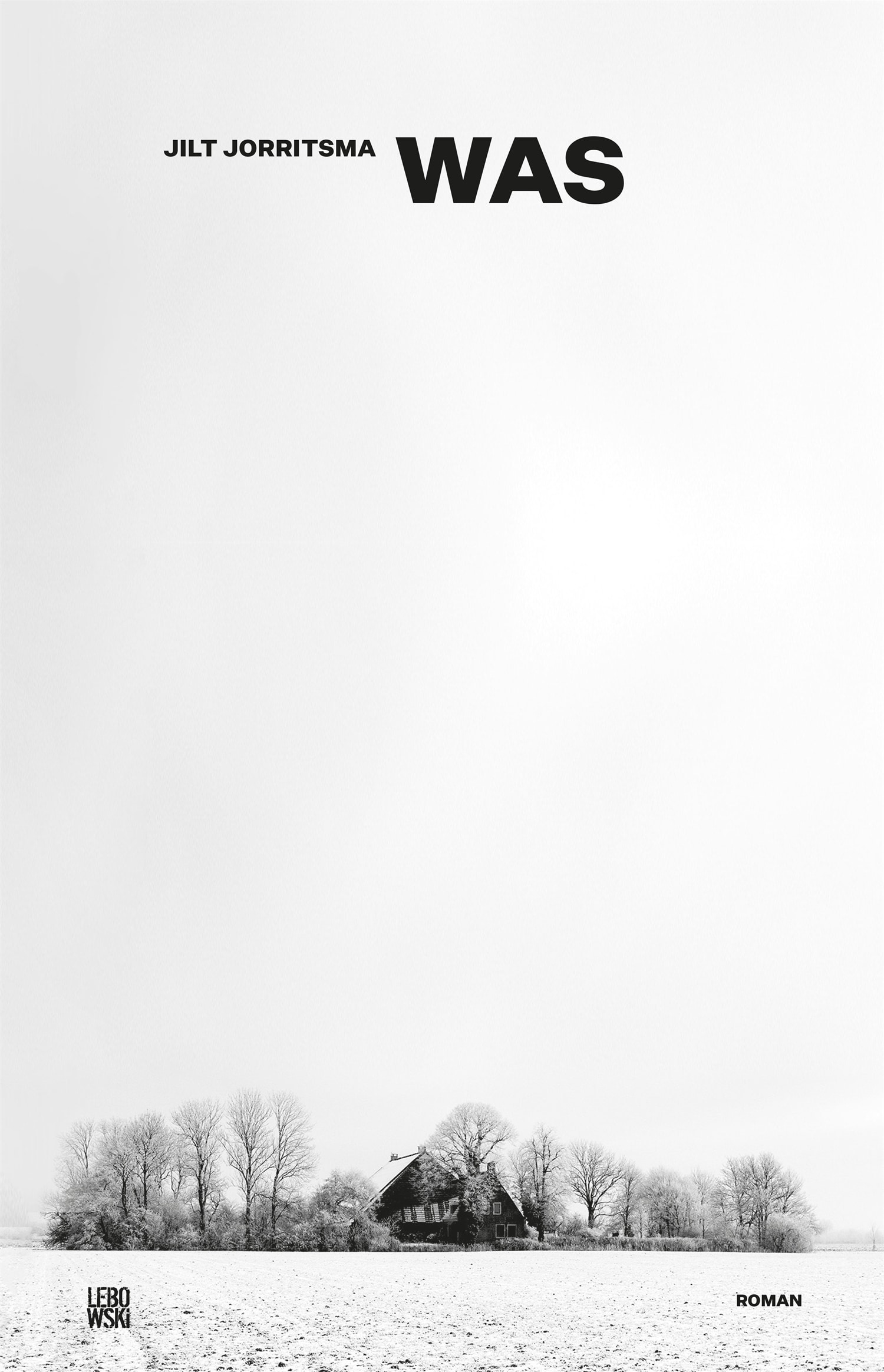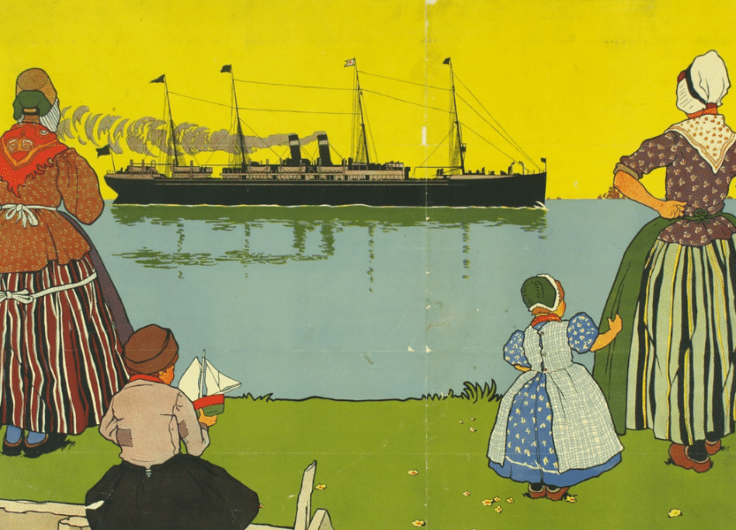‘Was’ by Jilt Jorritsma: Twin Peaks in the Frisian Polder
In Was (Wax), debut author Jilt Jorritsma eschews linear time, constructing a mysterious and fascinating story about retrieving the past and breaking out of the circle of life
Some books are easy to describe. For example, there are magical realism novels, epistolary novels, philosophical novels, psychological novels, horror, science fiction, or any manner of labels.
 Jilt Jorritsma
Jilt Jorritsma© Jonge Historici
You could call such categorisation by publishers and reviewers a bit lazy, but admittedly it is clear. The reader more or less knows where he or she stands. Libraries put it to good use, too, with stickers on the spine of the book.
But the young historian Jilt Jorritsma, winner of the first Joost Zwagerman Essay Prize in 2018 with Onthoofd
(‘Decapitated’), a piece about sculptures by Rodin that were found in the rubble of New York’s World Trade Centre towers after the 9/11 attacks, has not made it easy for librarians in the Low Countries.
His first book Was (Wax) covers all those genres mentioned above, apart from maybe horror. And yet, anyone who has nightmares about a visit to the dentist is sure to shudder at the description of how a decaying fifth wisdom tooth is extracted from main character Wyrd. Not something for sensitive readers, that could be a category apart.
[the book teaser for ‘Was’ was shot in a dentist’s chair]
The whole story begins with that wisdom tooth. It evidently should not be there, but after the painful surgery to remove it, research further reveals that the molar is older than Wyrd himself. The doctors are puzzled. It is a riddle that Wyrd, a scientist himself, is determined to unravel.
He can no longer ask his mother. She has dementia, stammers during visits that she has never had a son, and dies while Wyrd is in the hospital for a few days for his operation. All that remains is an old photo album with some images from his early childhood – he never knew his father.
Conversations with Ige, his ex who works in the same hospital, motivate him to look for his roots. Via Google Maps, he finds a remote place in the north of the Netherlands that is very similar to one of the photos in the album. It is not much to go on, but enough for Wyrd to give it a shot.
What follows is a dark, oppressive story with some surprising twists, steered by so-called dark patterns, environments that people unconsciously control. A kind of Twin Peaks in the Frisian polder, interspersed with philosophical reflections about the vanishing connection between humans and nature, or about whether linear time exists.
Only now, there is no mysterious murder to be solved: Wyrd is searching for the mystery of life itself. Bleeding and speaking trees play a role, as do bees. Bees, and their wax from which figurines are made. Aristotle, Virgil, and Descartes all make an appearance, we learn that bees used to be seen as the heroes of time and metamorphosis. And Wyrd finds wax figures in the attic of the farm where he stays with an old, eccentric man who survives on potatoes and honey.

Shuffling, step by step, Wyrd discovers the mystery of his (and our?) existence. Or thinks he does – because nothing in this story is ever quite as it seems. Jorritsma weaves together an abundance of storylines, yet Was (Wax) remains a tightly constructed novel that has momentum. As a reader, you never for a moment think that all this is too far-fetched or made up.
This is partly thanks to Jorritsma’s clear style. The book sometimes reads as a debate, the essayist is never far off in this novel. Jorritsma is good at making an argument, and that comes in handy when he reveals his discoveries step by step. At the same time, Jorritsma knows how to write an exciting scene, which also gives the book the cinematic character of a good thriller. The letters with which the book is embellished are particularly good, and here their dates are important.
Because if linear time doesn’t exist, then it really doesn’t matter where in the story you start. The circle is broken. Form and content go together perfectly as one. After reading the last page you can simply begin again, and then you will discover new things that you had previously completely overlooked. This is devilishly clever, and it shows that Jorritsma has stitched his story together in an ingenious way.
An excerpt from ‘Was’, as translated by Paul Vincent
When he wakes he is lying in bed again, undressed and well tucked in. Outside it has grown dark. He has a pounding headache and the burning pain in his throat has got worse. He looks around him in confusion. Next to his bed there is a jar of honey on the floor, which the old man must have put there for him.
His neck feels badly swollen. He wants to see how his throat looks, but there isn’t a mirror anywhere. So he switches on the light and opens the curtain, so that he can see himself in the window. The vague dark outlines of the trees outside loom through the reflection of his own image.
The veins in his neck are clearly visible, pushing through his skin. They look darker than usual. His whole neck is thicker, the glands swollen. He opens his mouth and pokes out his tongue, looking straight down his throat.
‘What the fuck…’
Along the surface of his throat there seems to be a kind of wiring, a complex of interwoven brown veins.
Wyrd chokes, tries with all his might to cough up what is in his throat, but cannot stand the pain. Again he cannot breathe. He quickly swallows a spoonful of the honey. The burning pain in his gullet is immediately numbed, as if his throat is waiting for the honey. To be on the safe side he takes a few more spoonsful. He switches his phone to selfie mode and holds the camera in front of his open mouth.
‘What kind of wire are they?’ he whispers to himself.
First he thinks that some mucus has got stuck. Again he clears his throat, and with a sharp rattling sound he coughs into his fist. Nothing comes loose. With two fingers he pokes deep into his mouth, gagging when he hits his tonsil by accident. He manages to get hold of one of the wires, and pulls it out. The thing is harder than he expected, doesn’t feel like slime or snot. He tugs at the wire, but it turns out to be attached to the surface of his throat. A stinging pain shoots through his body. In order to get the thing loose, he puts down his phone and with both hands breaks off a piece of the wire.
In his hand he is holding a limp, dry stalk with small branches attached. It looks like a piece of root, like that of a plant. Then Wyrd hears something. Talking, somewhere far away, as if a voice is penetrating through a number of walls.












